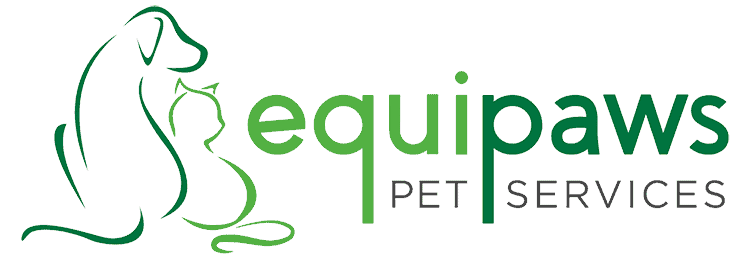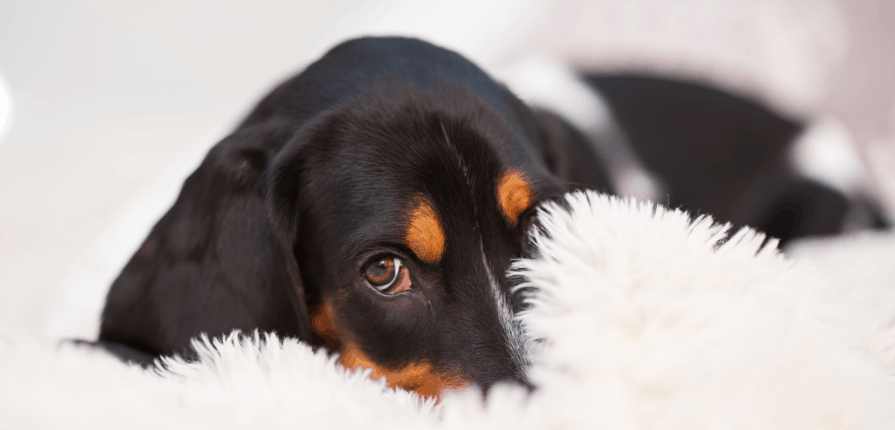COVID Canine Syndrome: Why is my dog so afraid of everything!?
Dee Hoult, Doggie Deeva and CEO of Applause Your Paws, South Florida’s largest privately owned dog training company, is our guest expert for this week’s blog topic on why pandemic puppies (also known as COVID puppies) are so anxious and afraid of everything.
“On behalf of our canine friends we say thank you 2020 for all the dog adoptions. New puppies, big and small, found forever homes. Our municipal shelter is at an all time low with less than 100 dogs on its adoption floor. To put that in perspective for you, pre-COVID there were 400 dogs at any given time awaiting adoption with kennels, often times two dogs to a run. But when we started spending all our time at home, what a perfect time to get a dog. Right? One of the biggest things we claimed to need more time for, we were now blessed with in endless amounts. This benefited the homeless animal population as well as breeders, yet here we are in 2021 and many of those dogs are actually suffering.
COVID puppies and separation anxiety
The added time to dedicate to your dog’s training has been, without a doubt, beneficial. However, if you and your new best friend are now used to staying home all the time, being social may now feel like a chore. For dogs, this can lead to being anxious or uncomfortable in foreign situations or even in the once normal fast-paced bustle of our beloved metropolis. Just because we now have the opportunity to be at home with our dogs more often, they still need to get out; see the world, gain confidence. A truly adjusted family dog needs the opportunity to experience time frames without our constant presence.
Prior to March 2020 were never home all the time. In between what our regular work hours used to be, running errands at rush hour (cue sitting on the couch and Instacart instead), and the potential bussing of children to and from school, dogs got very used to our regular absence. Now the tables have turned. Dogs now believe the new normal is ‘mom and dad will always be around’. For new puppies especially, it means that they know no life without their people in it.
What happens when we are back on schedule? What happens when the masks come off?
Dogs everywhere now need emotional support for this traumatic, cold turkey event. Let’s face it- most businesses didn’t really stop to create an adjustment period for their employees going back to work. This also meant that all the new puppies didn’t get eased into it either. These young dogs have actually received the endearing, albeit truthful, label from working professionals as “COVID puppies”. Characterized by their generalized fear of, well, everything outside of the home. They bark at people, dogs, are shy about being touched by strangers, and shut down in the face of otherwise “normal” day to day scenarios a dog pre-COVID would have experienced. These dogs are a class of under-socialized teenage woofers with some separation and isolation issues. This is to no fault of their loving owners, but a somewhat historical stamp made on society and the behavioral development of our furry friends.
To put it into perspective, a socialized puppy means that a puppy gets exposed to as many different types of people (at least 100), environments, buildings, sights, noises, smells, animals and other dogs prior to 12 weeks of age, 16 weeks at the latest. Puppies who do not begin proper socialization prior to 16 weeks show an exponentially harder time coping with new experiences, trying new things, and handling frustration.
How to help your COVID puppy
COVID puppies have now presented a separate challenge for professionals in the pet industry as a whole. Higher demand for dog walkers, day cares, and day school training programs to either rehabilitate or provide a worthy outlet. The observation of this phenomenon has caused us to acknowledge a completely new human/dog dynamic. The good news is, we gladly accept the challenge and are already seeing improvement the more and more these dogs can get into school, group classes and other training programs out of the house.
If you feel your dog is suffering some of the social side-effects of the CV-19 pandemic, please consult a professional. You don’t need to explain to us what’s happening, we already know! And, trust us, there’s no judgement. It is what it is, and we’re here to help.”
Summary: it’s time to up your game with your pups!
Are you expecting to get back to the office soon? If you have a pup who’s used to having you around 24/7, it’s time to start easing your dog into getting used to being comfortable with alone time at home.
- Before you leave on your trip, help desensitize your dog to your departures with independence training (such as teaching Downtime or Go to Place).
- Work on reducing anxiety around departure cues (putting on shoes, jangling keys, grabbing wallets) by picking up these items, getting dressed, randomly, when you are not going anywhere. Stay home to help prevent creating a link between these departure cues and loneliness.
- Practice short separations and then longer separations.
- Be calm when you leave and return. Don’t make a huge deal out of it, as it may heighten anxiety.
- Establish a routine with a dog walker to come take them out. We’re happy to help! A great trainer can also help you with independence training.
- Finally, talk to your veterinarian about other solutions if you are concerned about your pet’s health and safety.
If your pandemic puppy hasn’t been socialized, it’s time to get started! You can take them to socially-distanced doggie events (ease them into it), take them to group training classes at Applause Your Paws, and you can also hire our dog walkers for walks if you need some interaction and socialization with other humans. Some pet parents might need to call a behaviorist for extra help.
Please follow Applause Your Paws on Instagram and Facebook for incredibly helpful tips and information on positive reinforcement training for your pups!
To learn more about how Equipaws Pet Services can help you with walking your dog in Miami, check
out our dog walking service page, contact us directly, or call us at 305-794-3733.

A founding member of the Equipaws family, Frankie can mostly be found working behind the scenes, helping co-create online branding, managing several social media accounts, designing brand collateral, writing copy, and managing events. She also fills in for pet sitters and dog walkers when needed in Palmetto Bay, Pinecrest, and South Miami. Her own small pack consists of Boots the Shih Tzu mix and Nutmeg the Chiweenie.

